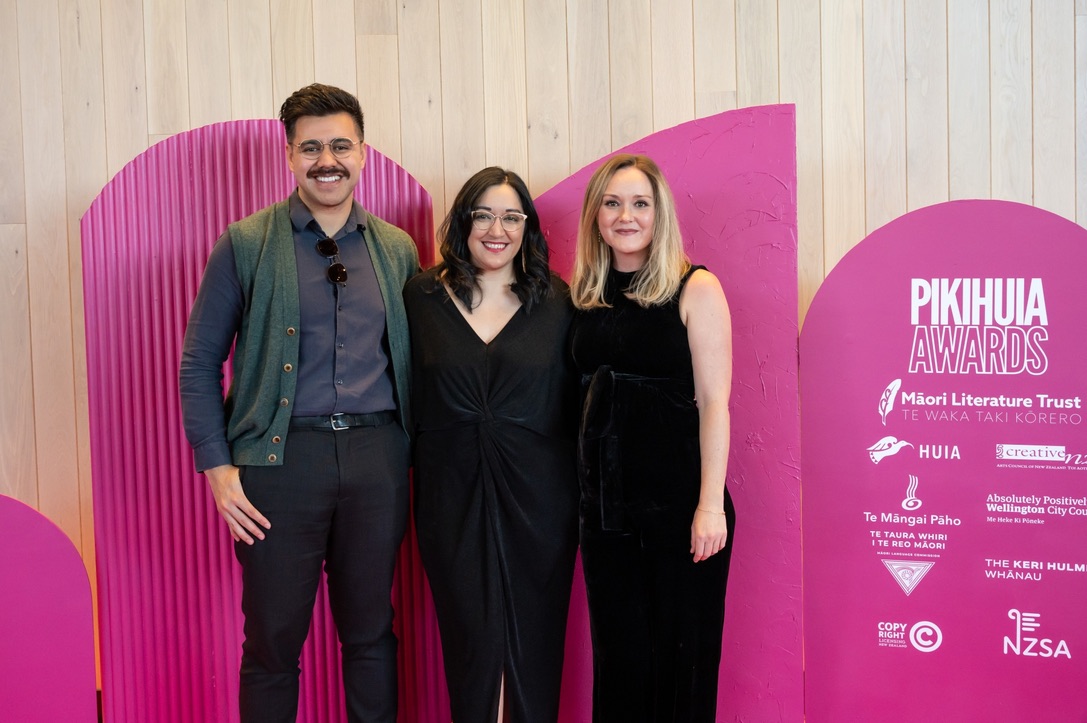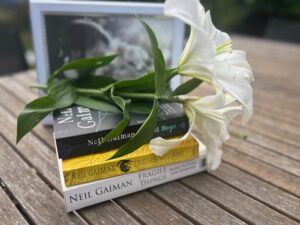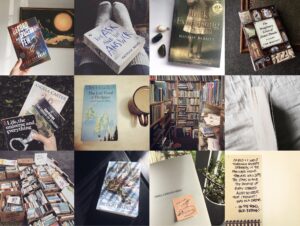A couple of weeks ago I attended the first birthday party for Huia Short Stories 15 at Unity Books in Wellington, where my friend and fellow Te Papa Tupu writer Steph Julian was reading. It’s quite cool that we’re both published in the same pukapuka alongside our other Te Papa Tupu friend Anthony Pita, who is an incredible young writer and won the short fiction in English prize at the Pikihuia Awards for his story ‘kintsugi with the colour pink’. Steph’s reading was great – she’s a natural at the public speaking game. Her story about scary beavers is brilliant and creepy.
Since then I’ve had a few things on my mind and I thought I’d write them down for this blog. I’ve been staring into space for ages trying to think of something clever to say but I have nothing clever to say. So I guess I’ll just write something true.
- My story in Huia Short Stories 15 is a love story. It’s called ‘The Island’ and it’s about a scientist who falls in love with a DOC ranger. The story is inspired by a trip to Kāpiti island for my cousin Rae’s birthday, where we came across a tree that talked to us. It’s also inspired by the tagline from the movie Atlantics which reads ‘every love story is a ghost story’ and is taken, I think, from the American writer David Foster Wallace. I’m obsessed with that line. I think about it all the time. Every love story is a ghost story. It’s unfortunately quite relevant to modern dating where ghosting is a socially acceptable form of communication (I am morally opposed to ghosting as a rule, so this does not apply to me). It speaks to the ghosts that we bring with us into relationships, everything we’re trying to unlearn as we learn new ways to love and be loved. More importantly, it speaks to one of my favourite kind of love stories: ghost love stories. Like Casper. There needs to be a Casper for grown-ups, seriously, because it’s so underrated as a love story. I understand that the movie Ghost with Demi Moore and Patrick Swayze is Casper for grown-ups, but I found it too scary when I was younger and have never rewatched it. Just Like Heaven is another ghost love story, and I do like it, but mostly for the song by The Cure that it’s named after. The one thing I love most about a ghost love story is the literal unrequited love, where it’s impossible to act on your feelings because you’re a ghost. Side note: there is a semantics issue that I don’t want to get into too much, but in this sense, love might be reciprocated but unable to be returned. Hence unrequited. I’m going to be honest here and say I know the pangs of unrequited love intimately. There’s some of that in ‘The Island’ as well. I’m not going to say which parts because you’ll have to read the story to find out and then tell me if you recognise the feeling.
- I didn’t want to read my story ‘The Island’ because I did the thing that writers do without really knowing they do it and put too much of something real onto the page.
- The Kupu Māori Writer’s Festival was held recently in Rotorua, and I was lucky to go along with my cohort from Te Papa Tupu. It was the best festival I’ve ever attended. One session I found immediately useful was on impostor syndrome with Shilo Kino and Jacquie McRae. Jacquie is a mentor on Te Papa Tupu this year working with my friend Taryn on her beautiful novel. As part of her kōrero, Jacquie mentioned the time she was shortlisted as a finalist in the Pikihuia Awards and went to the ceremony. While she was initially very excited, this soon morphed into intense stage fright, where she was so afraid of getting up on stage that the whole night passed in a blur and she couldn’t enjoy herself until it was over. This exact scenario happened to me when I went to the Pikihuia Awards in 2023. I was really excited and then as soon as I entered the Tākina events centre I started to panic. I didn’t stop panicking until the awards were over. I hurried to the table where my friends were sitting and hugged them both. Charles promptly gave me a glass of wine and Dana made me eat because I’d been too nervous to eat. It ended up being a fun night once I stopped worrying about getting up on stage. Half impostor syndrome, and half good old-fashioned social anxiety. It made me feel better (even though it probably shouldn’t have?) that Jacquie had the same experience as me, and I wonder how many other writers new to the Pikihuia stage have the same mind-numbing fear that we did. It makes me wish we could all meet each other beforehand and say hey, this isn’t going to be so bad. He waka eke noa. I do appreciate the chance to dress up. Any excuse to wear heels, I’m in. But impostor syndrome is the worst. I have no quick fixes. Except maybe hugs.
- There’s an old piece of writing advice to write for one person, rather than trying to imagine an audience of people reading your words. I can confirm that this has helped in the writing of this blog.
- Do you want to know about how the writing is going? I keep circling back to ‘The Island’, and how I feel when I read that story again. There’s so much truth and longing on the page that I am a little whakamā it’s in the world for anyone to read. I’m even more whakamā to be writing about it now. But I want to write what feels pono to me in the hope it resonates with someone out there who recognises a part of themselves. It’s why books are so magical, right? They are evidence that we share the human experience. That no feeling is a feeling you feel alone.
A big mihi to the team at Huia Publishers and the Māori Literature Trust for the Pikihuia Awards. Emerging Māori writers need to have a safe place to send their work and be considered for publication. Getting a story accepted is so exciting. It means you can do other things next… like write a novel, and submit your manuscript to Te Papa Tupu!





